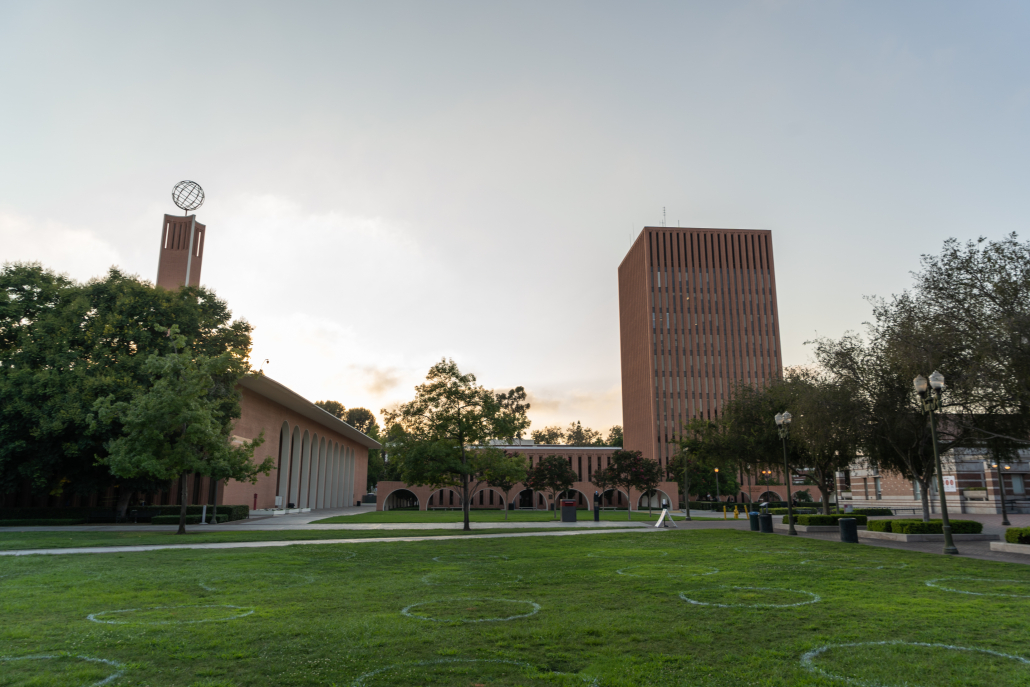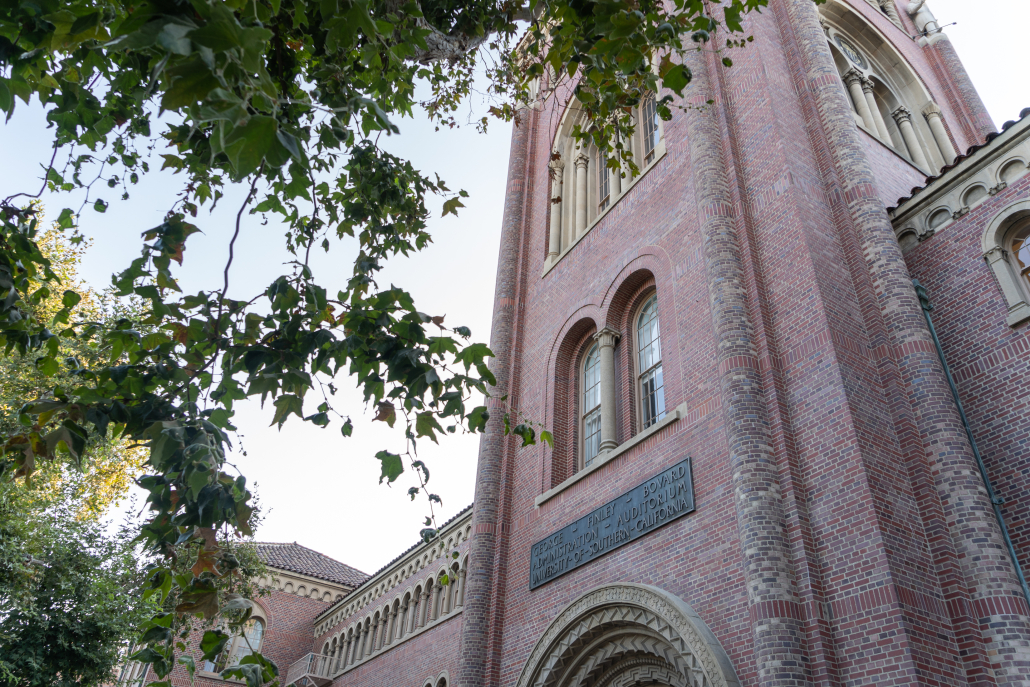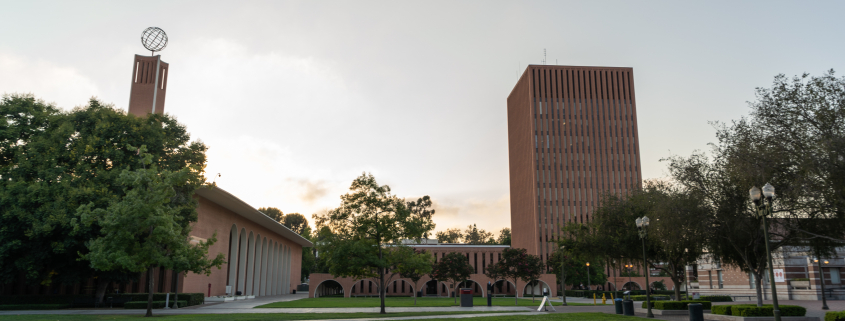Unpacking Joseph Medicine Crow’s legacy

After a year-long process of choosing between more than 200 potential names, the Center for International and Public Affairs Naming Committee renamed the Center for International and Public Affairs after Dr. Joseph Medicine Crow Nov. 18. The renaming followed years of student protests against the building’s previous namesake, former USC President and known eugenicist Rufus von KleinSmid.
Medicine Crow graduated from USC in 1939 with a master’s degree in anthropology, making him the first member of the Apsáalooke (Crow) tribe to receive a master’s degree, and received an honorary doctoral degree in 2003. Medicine Crow was named the tribe’s last war chief after his service in the United States Army’s 103rd Infantry Division during World War II and worked as a tribal historian for the Apsáalooke (Crow) nation following. In 2009, Medicine Crow received the Presidential Medal of Freedom, the highest civilian honor, from former President Barack Obama for his war contributions and work in Native American history.
The Daily Trojan spoke with Medicine Crow’s son, Ronald Medicine Crow, Monday to discuss his father’s legacy at the University moving forward.
This interview was edited for length and clarity.
Daily Trojan: What was your reaction when you first heard the news about the building’s renaming?
Ronald Medicine Crow: We were very surprised, and we were just so glad to hear such good news as that because USC was very important to Dad. He really enjoyed his schooling there, so it was kind of like a miracle that he was even able to go to school there in the first place, and it all came about with the good Lord making a way for him to be able to attend and obtain his master’s degree.
DT: There’s already a middle school named after your father. What does it mean to have his alma mater name a building after him?
RMC: It is something that we’re glad to see. As Native Americans, [it’s] not very often that something like this takes place, and only to certain individuals that have made something of themselves by getting an education and getting somewhere with it that this honor comes upon them.

DT: It seems like education was a really important thing to your father, as well as to your family and to a lot of Indigenous individuals who are inspired by your father. How do you think he would have reacted to the news of the renaming?
RMC: I’m sure he would have been very happy and proud that such a thing has occurred. When USC honored him in 2003 by giving him an honorary doctorate, one of his closing remarks after he gave a short talk was that he said he was very proud to be a member of USC’s academia. And after he said that … the crowd just roared — all the graduates, all the guests, all the faculty just roared. Students gave him a standing ovation. That was something very spontaneous that no doubt surprised him, but at the same time, he wasn’t very surprised at all.
DT: Did you have any other lessons or values that your father taught you regarding anything, whether it be education or being a good person?
RMC: Dad was involved in a lot of projects, a lot of things that come his way that he was more than willing to help … A small filming company came out of Canada to do some work here on the Crow reservation, and Dad was involved with that project. He was given a role in this short movie about a tribe that has lost their way in the wilderness, and they lost their identity, their clan system and their tribalism.
Dad had this role as the chief to the main tribe, and they assimilated this lost tribe as they were being assimilated and introduced to the various clans and the rest of the tribal members. Dad was given a role as a chief to instruct these new lost tribe members and assimilate them back into their tribe.
One thing that he said that more or less sums up his own life … and the way he lived his life, he was given these words. This motto, slogan or however you want to put it, words of wisdom, words of instruction to people who need a lot of help in getting ahead in life. There are four quotes that he made … The first quote he says, “Honor comes to him by the life you live.” Second one, “Honor comes to him by the prayers that you make.” Third one, “Honor comes to him by the sacrifices you make.” The fourth one, “Honor comes to him by the accomplishments that you achieve in life.”
That pretty well sums up Dad’s life, because all those things he lived … and that’s why he’s so honored today.
DT: When future Native American and Indigenous students pass by the building in years to come, how do you hope they would react?
RMC: It’s important to us, as a family, as a Crow tribe of Indians here in Montana, and to Indian tribes throughout all of America, that this honor just doesn’t fall on me and my family and the Crow tribe. This honor goes to all Native Americans and tribes of America, and I’m sure that it’s something that’s very good news to all these other Indian tribes — that a Native American can be recognized at a major university. That speaks volumes about how people highly respect Native Americans and honor him in such a manner. That is something that is just overwhelming, and it made a lot of people happy.
I’m sure Native Americans across the country, including Alaska, the Hawaiian Islands, Puerto Rico, [know] that a person of color can accomplish something in their life and be honored even years after their passing. This is another part of his legacy that he’s passed on, not just to us family members, but to all of America, Native American Indians everywhere, indigenous to this continent.
DT: President Carol Folt also announced she would create a scholarship program for Native American students in your father’s name. What are your thoughts on this, especially because your father attended USC on a scholarship. What does this mean for you and your family?
RMC: [The scholarship] was something that I just threw in as a suggestion. I didn’t realize that the President would take it serious. I think it’s more than fitting that other Indian students will be given opportunity, not just Crow tribal members, but any tribe throughout the country that is willing to further their education.
I’m sure [Native American students] will be inspired to follow … and they’ll be inspired to come to USC as a place where Native Americans are more than welcome, and they’re not excluded. They’re welcome to come and complete their higher education and so forth … Whatever they’re striving for and will obtain at USC.

